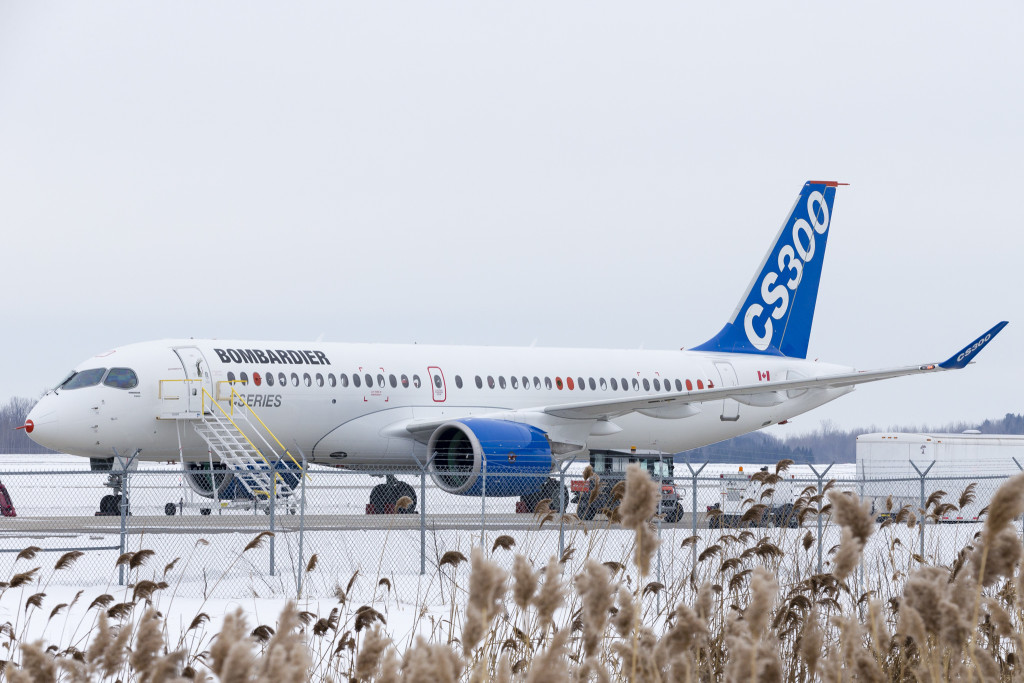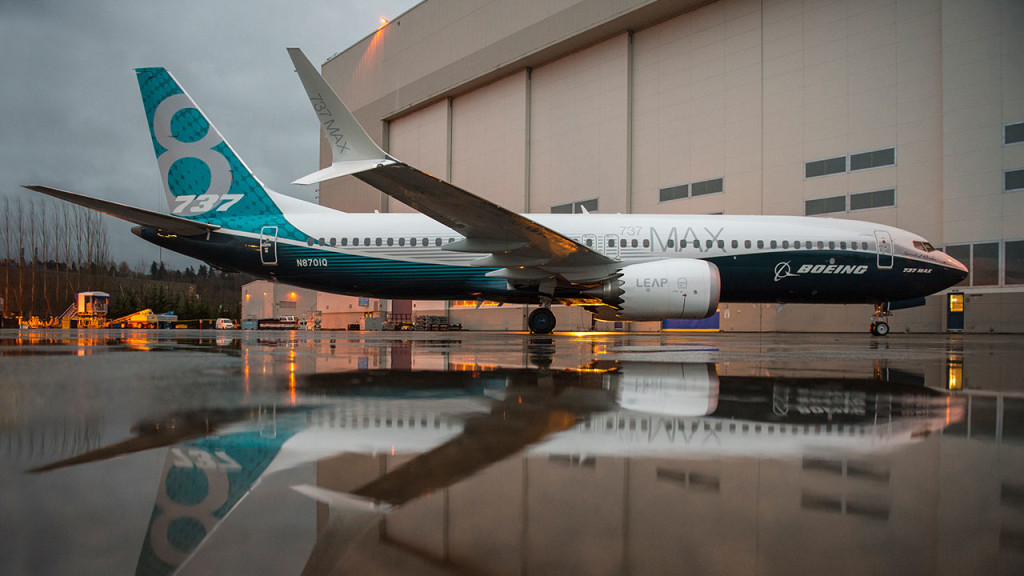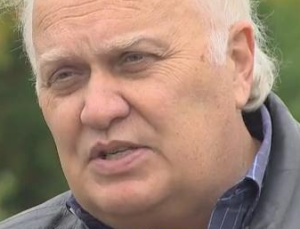Leeham News and Analysis
There's more to real news than a news release.
 Leeham News and Analysis
Leeham News and Analysis
- The Boeing 767 Cross Section, Part 1 November 24, 2022
- Movie Review: Devotion November 21, 2022
- China will accelerate development of its commercial aerospace sector November 21, 2022
- Bjorn’s Corner: Sustainable Air Transport. Part 46. eVTOL comparison with helicopter November 18, 2022
- The economics of a 787-9 and A330-900 at eight or nine abreast November 16, 2022
UTC media day 1: UTAS, twice the size of any other aerospace systems company
Note: United Technologies Corp (UTC) is holding its annual Media Days today and tomorrow. We’re providing reporting from the event. This is the first time in our long participation that UTC Aerospace Systems is presenting. UTAS is a major supplier and service provider to all the airframe OEMs.
June 6, 2016: UTC Aerospace Systems is just four years old, following mergers with

Dave Gitlin, CEO of UTC Aerospace Systems (UTAS).
Hamilton Sundstrand and Goodrich–the largest in aerospace history, says Dave Gitlin, president of UTC Aerospace Systems.
UTAS provides electrical power and bleed air systems, engine, starters, power systems, all the circulating fans on the Boeing 787, monitoring systems and much more. Evacuation slides, the Ram Air Turbines, landing gear, flaps and slat control systems, brakes and thrust reversers.
Posted on June 6, 2016 by Scott Hamilton
Can Bombardier extend CS300 to a CS500?
By Bjorn Fehrm
Subscription required
Introduction
April 14, 2016, ©. Leeham Co: Bombardier is working hard to get additional mainline airline customers for its C Series project. The latest discussion is whether Delta Air Lines would replace its fleet of Boeing MD-88s with the C Series.
In this context, it’s also discussed if the largest model, the CS300, Figure 1, is large enough for Delta. This aircraft seats 135 passengers in a two class configuration and up to 160 passengers in an all economy high density version.
The question is whether this is sufficient for Delta and other mainline customers, or if a still larger version is needed in the program, the oft-discussed CS500. We decided to use our proprietary aircraft model to see if a CS500 would be straight forward for Bombardier to develop, should Delta or any other customer ask for a three model C Series program.
Summary
- The C Series aircraft program was developed with the CS300 as the main model. The wing, engine and landing gear were dimensioned with the CS300 in mind.
- The CS100 is a shrink of the CS300, and not vice versa (the CS300 a stretch of the CS100).
- A tentative CS500 stretch if therefore a first stretch of the program’s main model and not a double stretch of a CS100.
- This is evident when one starts to analyze how a CS500 would be designed. There are rather modest changes that need to be done to create an extended model that seat up to 180 passengers.
Posted on April 14, 2016 by Bjorn Fehrm
Airbus, Boeing, Bombardier, Comac, CSeries, Delta Air Lines, E-Jet, Embraer, Irkut, Pratt & Whitney, Premium
737, 737 MAX, A320, A320NEO, Airbus, Boeing, Bombardier, C919, Comac, CSeries, E-Jet E2, Embraer, MC-21, Pratt & Whitney
ISTAT Day 1: Engine updates for CFM, GE, RR and PW
Feb. 29, 2016, (c) Leeham Co.: The LEAP engine, for the Boeing 737 MAX, Airbus ![]() A320neo and COMAC C919 is the fastest-selling engine in history, says Jean-Paul Ebanga, the president of CFM International. More than 10,000 have been sold.
A320neo and COMAC C919 is the fastest-selling engine in history, says Jean-Paul Ebanga, the president of CFM International. More than 10,000 have been sold.
- We’re at the 2016 ISTAT AGM in Phoenix and will be reporting today and tomorrow on presentations and news from the sidelines.
“It’s on-time and on-spec,” Ebanga said. It’s either been on the date set four years ago or ahead of schedule. The engines delivered to Airbus for the A320neo are on spec, he said. It’s been certified for the neo and will be certified soon for the MAX, with 90% of the information submitted.
Posted on February 29, 2016 by Scott Hamilton
Airbus, Boeing, Bombardier, CFM, Comac, CSeries, E-Jet, Embraer, Irkut, Mitsubishi, Rolls-Royce
737 MAX, A320NEO, Airbus, Bill Brown, Boeing, Bombardier, C919, CFM, Comac, CSeries, EJet E2, Embraer, GE Aviation, Irkut, Jean-Paul Ebanga, LEAP, MC-21, Mitsubishi, MRJ90, Rolls-Royce
Irkut MC-21, first analysis
By Bjorn Fehrm
Subscription required.
Introduction
Feb. 08, 2016, © Leeham Co: We recently covered China’s COMAC C919 and now the time has come to the other new narrow body aircraft from the old Communist bloc, the Russian MC-21.
The aircraft is called Irkut MC-21. Not many have heard of Irkut, so the first reaction is that this aircraft is made by a new Russian aircraft firm. The change is that United Aircraft (the Russian aircraft industry holding company) this time called the aircraft after its manufacturing company and not the design bureau, Yakovlev, that Irkut acquired in 2004. There are discussions to change back to the project’s original name Yakovlev 242 once certification is done.
When we looked at the first civil airliner that the Russian federation designed after the fall of Soviet Union, the Sukhoi Superjet 100, we found a well designed aircraft equipped with Western system. The MC-21 follows the same lines, but has more Russian technological development. It is therefore well worth a look.
Summary:
- The MC-21 has its own profile. It is not a copy of a Western aircraft. It has a wider cabin than the A320, a wing which allows a higher cruise speed and a higher capacity in its base variant, the MC-21-300.
- To make a meaningful comparison between the MC-21 and established aircraft, we have chosen to compare the MC-21-200 with the Airbus A320neo, as the MC-21-300 is larger than the A320neo but smaller than an A321neo. The MC-21-200 is closer in size to an A320neo. Read more
Posted on February 8, 2016 by Bjorn Fehrm
Bjorn’s Corner: Exciting 2016
29 January 2016, ©. Leeham Co: In the corner of two weeks ago we did a retrospective of 2015. Time for looking ahead. The year of 2016 will be quite interesting. We had entry into service of the first re-engine single aisle aircraft this week, the Airbus A320neo, the same week as we expect first flight from its main competitor, Boeing’s 737 MAX 8. We will also see first flight of the Embraer E190E2 and A350-1000 before the year is over.
The Mitsubishi MRJ shall go test flying in earnest and Bombardier’s CSeries 100 and 300 shall enter service. On top of that, the COMAC 919 will probably start ground roll tests this year and we should see roll out of Irkut’s MC-21. I would say 2016 is a busy year for civil aviation.
In the 2015 corner we talked a lot about engine technology as a key driver to further efficiency of air transportation. Now will dissect the airframe technology that all these new projects will bring us. Read more
Posted on January 29, 2016 by Bjorn Fehrm
Pontifications: Shifting focus to Embraer
Jan. 25, 2016, © Leeham Co. Embraer announced last week it had cut metal on its first E195 E2, more than a month before the roll-out of the first E190 E2, scheduled for Feb. 25, at is Sao Jose, Brazil, plant.
The aggressive manufacturer of small(er) passenger jets is moving forward full speed toward its next generation of aircraft even as Airbus, Mitsubishi, COMAC and Irkut encounter one delay after another.
Posted on January 25, 2016 by Scott Hamilton
Bjorn’s Corner: What did we learn in 2015?
08 January 2016, ©. Leeham Co: It’s the first Corner for the year and a look at 2015 as a year of technology advancements is due. 2015 will be remembered as the year when three clean sheet airliners passed important milestones. This will not happen for many years to come, so it will be worth to look at what they brought to world of aviation.
I’m thinking of Bombardier’s (BBD) CSeries getting certification for its first variant; the Mitsubishi MRJ doing its first flight’ and COMAC’s C919 being rolled out. Going forward, we will only have derivatives progressing through such milestones for years except for the roll-out of United Aircraft’s MS-21 single aisle airliner in 2016.
The Airbus A320neo was certified in 2015 and Boeing’s 737 MAX rolled out, but these are derivatives of in-service aircraft.
Embraer’s E-Jet E2 will roll out in February but this is a further development of today’s E-jet and Airbus A350-1000 is a variant of the in-service A350-900.
It will be a long time before we see so much new in a year, so it can be instructive to look at to what extent did these new aircraft bring the state of the art of airliners forward.
Posted on January 8, 2016 by Bjorn Fehrm
New aircraft programs’ sorry record of delay
Subscription Required.
Jan. 7, 2016, (c) Leeham Co. New aircraft programs used to be on time and a source of pride for the Original Equipment Manufactures (OEMs).
No longer. Delays are the norm, and despite “lessons learned,” there is little record so far that much has changed.
Boeing strives to turn this around with the 737 MAX. When the program was launched in July 2011, with a hasty decision to counter the Airbus A320neo order at American Airlines, Boeing forecast the first delivery would be in the fourth quarter of 2017 (October was the more specific target date). Within a year, Boeing revised this forecast to the third quarter, with July being the new target.
With the roll-out last month of the 737-8, Boeing so far appears to be on schedule for the new target. The plane hasn’t made its first flight yet, and plenty could still theoretically go wrong, but at least for now, things appear to be on track.
Embraer announced last month that the roll-out of its first E-190 E2 will be Feb. 25. The company has been tight-lipped about its timeline to date, other than a 1H2018 delivery target, but Market Intelligence indicates the roll-out is likely about a month sooner than had been planned. Suggestions by some that the MAX program is the “only” one on time are simply off the mark.
Posted on January 7, 2016 by Scott Hamilton
Airbus, American Airlines, Boeing, Bombardier, Comac, CSeries, Embraer, Irkut, Mitsubishi, Premium
737 MAX, 737-8, 777-200LR, 777-300ER, 777F, 777X, A320, A320NEO, A350, A380, Airbus, American Airlines, ARJ21, Boeing, Bombardier, C919, Comac, CS100, CSeries, E-190 E1, E-195 E2, E-Jet E2, Emrbaer E-190 E2, Irkut, MC-21, Mitsubishi, MRJ90
737 MAX to roll out to Boeing product strategy challenges
Subscription Required
Introduction

The Boeing 737-8 rolls out tomorrow to challenges to Boeing’s product strategy. Image via Google images.
Dec. 7, 2015, © Leeham Co: Boeing rolls out its first 737 MAX tomorrow to no press fanfare. Today there is a limited press tour of the assembly line, but, according to reporters who were invited, there will be no press briefings.
It’s an inexplicably low-key event for what Boeing otherwise touts as a major evolution of the venerable 737 line.
As good as Boeing claims the airplane will be, and as much spin as Boeing’s marketing department tries to put on the rivalry vs the Airbus A320neo, the 737 MAX clearly is second fiddle—and it’s not going to get better.
Summary
- Airbus holds a commanding market share: 60% to 40% of the family comparisons.
- Airbus holds about a 55% share of the A320neo vs 737-8 comparison.
- The A321neo outsells the 737-9 by about 4:1.
- Boeing faces cash flow challenges in 2020 decade.
Posted on December 7, 2015 by Scott Hamilton
Email Subscription
Twitter Updates
My TweetsAssociations
Aviation News-Commercial
Commentaries
Companies-Defense
Resources
YouTube
Archives
- November 2022
- October 2022
- September 2022
- August 2022
- July 2022
- June 2022
- May 2022
- April 2022
- March 2022
- February 2022
- January 2022
- December 2021
- November 2021
- October 2021
- September 2021
- August 2021
- July 2021
- June 2021
- May 2021
- April 2021
- March 2021
- February 2021
- January 2021
- December 2020
- November 2020
- October 2020
- September 2020
- August 2020
- July 2020
- June 2020
- May 2020
- April 2020
- March 2020
- February 2020
- January 2020
- December 2019
- November 2019
- October 2019
- September 2019
- August 2019
- July 2019
- June 2019
- May 2019
- April 2019
- March 2019
- February 2019
- January 2019
- December 2018
- November 2018
- October 2018
- September 2018
- August 2018
- July 2018
- June 2018
- May 2018
- April 2018
- March 2018
- February 2018
- January 2018
- December 2017
- November 2017
- October 2017
- September 2017
- August 2017
- July 2017
- June 2017
- May 2017
- April 2017
- March 2017
- February 2017
- January 2017
- December 2016
- November 2016
- October 2016
- September 2016
- August 2016
- July 2016
- June 2016
- May 2016
- April 2016
- March 2016
- February 2016
- January 2016
- December 2015
- November 2015
- October 2015
- September 2015
- August 2015
- July 2015
- June 2015
- May 2015
- April 2015
- March 2015
- February 2015
- January 2015
- December 2014
- November 2014
- October 2014
- September 2014
- August 2014
- July 2014
- June 2014
- May 2014
- April 2014
- March 2014
- February 2014
- January 2014
- December 2013
- November 2013
- October 2013
- September 2013
- August 2013
- July 2013
- June 2013
- May 2013
- April 2013
- March 2013
- February 2013
- January 2013
- December 2012
- November 2012
- October 2012
- September 2012
- August 2012
- July 2012
- June 2012
- May 2012
- April 2012
- March 2012
- February 2012
- January 2012
- December 2011
- November 2011
- October 2011
- September 2011
- August 2011
- July 2011
- June 2011
- May 2011
- April 2011
- March 2011
- February 2011
- January 2011
- December 2010
- November 2010
- October 2010
- September 2010
- August 2010
- July 2010
- June 2010
- May 2010
- April 2010
- March 2010
- February 2010
- January 2010
- December 2009
- November 2009
- October 2009
- September 2009
- August 2009
- July 2009
- June 2009
- May 2009
- April 2009
- March 2009
- February 2009
- January 2009
- December 2008
- November 2008
- October 2008
- September 2008
- August 2008
- July 2008
- June 2008
- May 2008
- April 2008
- March 2008
- February 2008






Pontifications: Looking ahead to 2016
Jan. 4, 2016, © Leeham Co. Let’s take a walk through our outlook for 2016.
Boeing is 100
There will no doubt be all kinds of celebrations at the Air Show. To the extent possible, I would imagine Boeing will try to have a whole lot of orders to announce there. There will be all kinds of run-up to the 100th anniversary. Few throw a party as well as Boeing. (Just don’t sing “Happy Birthday;” I never have liked this song.)
It’s a great achievement and we should all celebrate with Boeing for the next seven months.
Read more
101 Comments
Posted on January 4, 2016 by Scott Hamilton
Airbus, Boeing, Bombardier, Comac, Farnborough Air Show, Leeham News and Comment, Mitsubishi, Pontifications, Pratt & Whitney
747-8, 777 Classic, A380, Airbus, Boeing, Bombardier, C919, Comac, CS100, CS300, CSeries, Farnborough Air Show, Mitsubishi, MRJ90, Pontifications, Pratt & Whitney